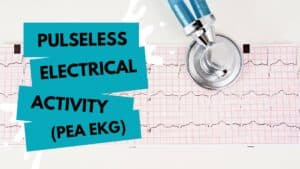
Life on the Line: PEA and EKG Triggers
Imagine your patient presents with no pulse. You begin CPR and hook the patient up to your
An electrocardiogram (abbreviated as EKG or ECG) is a test used by medical professionals to determine the electrical activity of a heart.
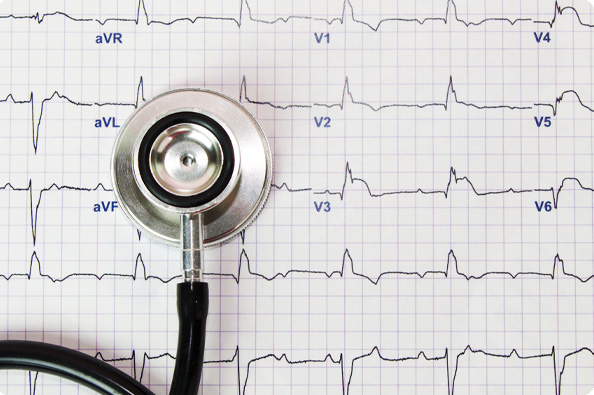
If you need to check a patient’s heart rhythm, you’ll likely set up an EKG. Electrocardiograms are used to detect the electrical impulses sent out with each heartbeat. They provide information that can help you identify irregular heart activity and see if any parts of the heart are overworked.
EKG is a common diagnostic tool in the medical field. Understanding how to perform an EKG is extremely valuable for any medical professional who works with cardiac patients. This course is also a prep course for ACLS and PALS to better understand rhythms.
To conduct an EKG, electrodes are placed around the chest, arms, and legs. These electrodes are connected via wires to an EKG machine, which will measure the heart and print out a reading. Learn more about how to use an EKG in a training course.
You can receive a completion certificate in EKG and pharmacology with SureFire CPR. In our world-class training course, you’ll learn everything you need to know about heart anatomy and electrophysiology, how to interpret EKG results, and more.

Don’t leave an emergency up to chance.
Prepare for an exceptional career with an EKG training course from SureFire CPR. You’ll learn new skills and gain confidence through real-world examples and hands-on experience. Sign up today for a course at one of our many locations in Southern California or dive deeper with our online EKG training.

It is highly recommended that you take an EKG class every 2 years.
Make sure you don’t lose your touch when reading EKG rhythms. Not only will you get an updated completion certificate and continuing education hours, but you will also get a helpful refresher on EKG interpretation so that you’re ready to help your patients.
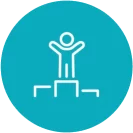
An introductory EKG class is a great way to master EKG skills and prepare for ACLS and PALS courses. Sign up today for an online EKG class at SureFire CPR.
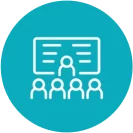
Are you part of a team that responds to cardiac events? Group training is a great way for everyone to hone their skills and build confidence as a team.

I spent 15 years as a firefighter and paramedic, and reading an EKG does not have to be as hard as everyone makes it out to be…
When I was in medic school, I always wished I learned more about EKGs. They seemed intimidating and confusing at the same time and the last thing I wanted to do on the scene was misdiagnose a rhythm. Quick ECG interpretation can be the difference between life and death, so we set out to develop a series of EKG training courses that break it down for you in the simplest way possible – that way you’ll be confident when you need it most.


Imagine your patient presents with no pulse. You begin CPR and hook the patient up to your
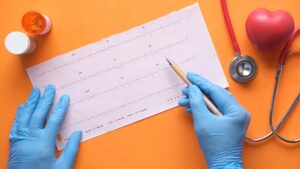
Ventricular tachycardia (Vtach) and ventricular fibrillation (Vfib) are two potentially life-threatening heart arrhythmias that originate in the
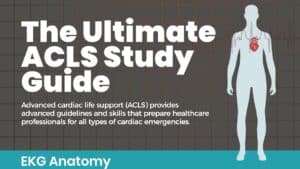
What is ACLS? Advanced cardiac life support (ACLS) teaches advanced guidelines and skills to respond to cardiovascular
The best way to master EKG skills is by taking a dedicated training course. EKG and Pharmacology classes will give you an in-depth study of the techniques and skills you’ll need to successfully administer an EKG.
ECG and EKG are both acronyms for electrocardiogram.
You can refer to an electrocardiogram as an ECG or an EKG; the two acronyms are used interchangeably.
An EKG records the electrical activity of the heart. Its results can help you detect irregularities such as a fast heartbeat or an overworked part of the heart.
The three types of ECG include a resting ECG, an exercise (or “stress”) ECG, and an ambulatory ECG (also called a Holter Monitor).